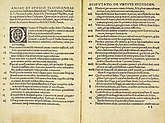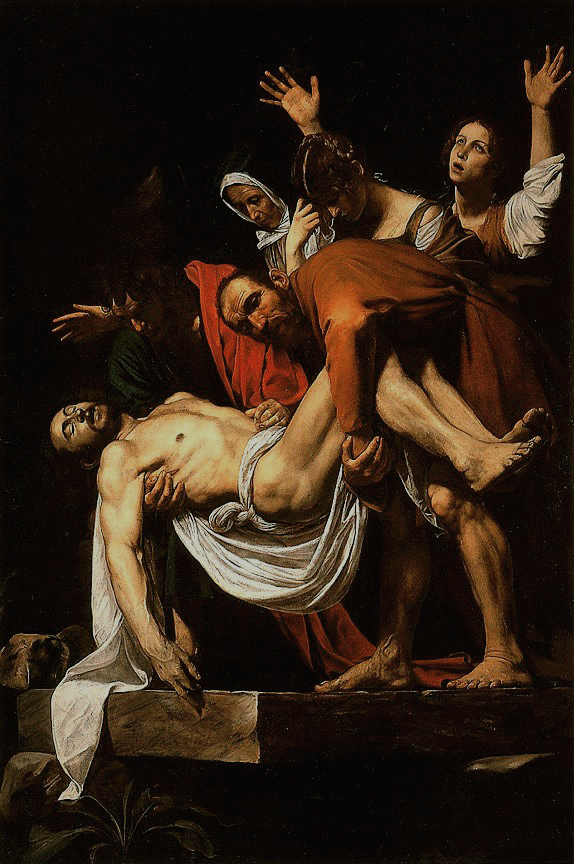
Posted on 10/31/2012 2:40:55 PM PDT by Alex Murphy

The 95 Theses
On this day in 1517 a relatively unknown German monk pounded a proclamation of sorts onto a church door in Wittenburg, Germany. In the empty spiritual bucket created by a corrupt Catholic Church hierarchy and alongside a godless Renaissance, Luther’s 95 Theses represented renewal. They were a call back to personal and corporate holiness that resounded well past the door frames of the church.
There are six attributes common to all movements and we can easily see them in Luther’s Reformation. For those of us bent on seeing movements of transformation the lessons are worth reviewing.
Affinity group recruitment: Luther’s translation of the Bible into the vernacular language of the common man made it possible for the message to be passed from person to person. The printing press fueled the writings of Luther and the message quickly spread from town to village to city. Originally, Luther has posted his 95 Theses in Latin. Others translated and printed them into pamphlets and they were passed hand to hand across the European continent.
Common acts of commitment: The Catholic Church, in the early 1550s, demanded not only spiritual obedience but was a mark of citizenship. The act of separating oneself from the Church was an act of disloyalty to the European order. It was a radical act but one that cemented the newly forming “Protesting Church” into what sociologist call a “densely packed social network.” Benjamin Franklin captured what these types of “no return” acts do for a movement at the signing of the American Declaration of Independence: “We must all hang together, or assuredly we shall all hang separately.”
Opposition (real or perceived): Luther did not intend to abolish the Catholic Church but to reform it. his wine, however, was too new for the old wineskins and the Church turned on its monk, seeking to imprison him and stop his criticisms. This gave way to the sort of persecution that feeds the flames of rapidly growing movements.
Retro-revolutionary ideology: Luther’s message was a reformer’s message. Rarely do movements take hold and flourish when their ideology completely replaces a group’s foundational understandings. Jesus was thoroughly Jewish (retro) yet his message demolished the status quo (revolutionary). Luther similarly embraced the truths of the Bible while challenging the Church’s grip on power.
Network structures: The Reformation would eventually coalesce into a number of strategic and important “centers” of activity. Calvin’s Zurich is perhaps the most important one. However, the message of opposition to the centralized Catholic Church produced a host of leaders who each battled for their perspective of the church. This inevitably gave way to a healthy fragmentation and the sharing of leadership among a wide array of movement leaders.
Set of favorable circumstances: There are few eras that have been as ripe for change as the 1500s. Luther walked into a century that would give us Da Vinci, Galileo, the first globe, incredible intercontinental adventures, flush toilets, and bottled beer. The list goes on and on! The religious culture of Western Europe had become a fusion of folk mysticism blended with Catholicism. People were searching for more substantial answers to the problems of life and Luther’s Bible translation was ready to fill that void.
One could argue that the Reformation has affected global Christianity more than any other historical event since the New Testament era. I find it telling that today we celebrate Halloween, a part of that mystical folk religion of Europe, on this day rather than Luther’s unknowing act of bravery. Instead of teaching our children to say “trick or treat” perhaps they should learn to say, “Happy Reformation Day.”
Perhaps the time is ripe for a new movement.
Of course, there’s a lot of change happening. Next week the North-Western Evangelical Bible-Reformed branch of PresbyMennonCongregationalutherAdventipentecostathism is due to split into the Central-North-Western Evangelical Bible-Reformed branch of PresbyMennonCongregationalutherAdventipentecostathism and the Central-Southern-North-Western Evangelical Bible-Reformed branch of PresbyMennonCongregationalutherAdventipentecostathism, but this is good driven as there as a dispute in the Congregation on matters of doctrine, Bobama thought that he should be Preach-pasto-Prophet Elder on Mondays, Tuesdays, Wednesdays and alternate Sundays while Michelle thought that she should be that — as she had yoga-pilates-kickboxing class on Thursdays.
Wahab went against the 1000 year agreed interpretation of the Koran, stating that folks should be "sola scriptura" -- in the Islamic sense, only the Koran, ignoring the centuries of beliefs and consensus of centuries
This reforming movement by the Wahabbis is spreading thanks to the "Wahabbi work ethic or rather Saudi money ethic" through the Taliban, Pakistan, etc.
The aim, as you see among the Taliban etc. is to return to the "Early Moslems" -- of course Luther, coming from orthodoxy was no where in personality comparable to Wahabb, but note -- your question was about refroming in Islam and that's already happenned.
Not sure, but it’s a Caravaggio. Caravaggio is incredibly fantastic


Exquisite.
I remember seeing this at the Uffizi or in the Churches in Rome. Exquisite
The pope has neither the will nor the power to remit any penalties beyond those imposed either at his own discretion or by canon law.
The pope himself cannot remit guilt, but only declare and confirm that it has been remitted by God; or, at most, he can remit it in cases reserved to his discretion. Except for these cases, the guilt remains untouched.
God never remits guilt to anyone without, at the same time, making him humbly submissive to the priest, His representative.
Accordingly, the Holy Spirit, acting in the person of the pope, manifests grace to us, by the fact that the papal regulations always cease to apply at death, or in any hard case. It is a wrongful act, due to ignorance, when priests retain the canonical penalties on the dead in purgatory.
Defective piety or love in a dying person is necessarily accompanied by great fear, which is greatest where the piety or love is least. This fear or horror is sufficient in itself, whatever else might be said, to constitute the pain of purgatory, since it approaches very closely to the horror of despair. There seems to be the same difference between hell, purgatory, and heaven as between despair, uncertainty, and assurance.
Of a truth, the pains of souls in purgatory ought to be abated, and charity ought to be proportionately increased.
The same power as the pope exercises in general over purgatory is exercised in particular by every single bishop in his bishopric and priest in his parish.
The pope does excellently when he grants remission to the souls in purgatory on account of intercessions made on their behalf.
Yet the pope's remission and dispensation are in no way to be despised, for, as already said, they proclaim the divine remission.
Papal indulgences should only be preached with caution.
Christians should be taught that they purchase indulgences voluntarily, and are not under obligation to do so.
Christians should be taught that the pope's indulgences are useful only if one does not rely on them, but most harmful if one loses the fear of God through them.
The treasures of the church, out of which the pope dispenses indulgences, are not sufficiently spoken of or known among the people of Christ.
That these treasures are not temporal are clear from the fact that many of the merchants do not grant them freely, but only collect them.
Nor are they the merits of Christ and the saints, because, even apart from the pope, these merits are always working grace in the inner man, and working the cross, death, and hell in the outer man.
On the other hand, the treasure of indulgences is most acceptable, for it makes the last to be the first.
Bishops and curates, in duty bound, must receive the commissaries of the papal indulgences with all reverence. But they are under a much greater obligation to watch closely and attend carefully lest these men preach their own fancies instead of what the pope commissioned.
Let him be anathema and accursed who denies the apostolic character of the indulgences.
If therefore, indulgences were preached in accordance with the spirit and mind of the pope, all these difficulties would be easily overcome, and indeed, cease to exist.
Christians should be exhorted to be zealous to follow Christ, their Head, through penalties, deaths, and hells. And let them thus be more confident of entering heaven through many tribulations rather than through a false assurance of peace
These are just some of the 95 theses. All of the above is Catholic Doctrine. Do Protestants celebrating this day agree with them???
Please, do expand the bolded part. I am interested.
Well, the more I read, the more confused. Clearly Christ said the words.I like to leave it as one of the mysteries of the Church. I get less head spin that way.
I guess there are some things that we humans cannot wrap our heads around. One of those being how something that is obviously bread and wine can also be the body and blood of Christ in more than just a spiritual way, or because we believe it is or don’t believe it is.
Disclaimer: Opinions posted on Free Republic are those of the individual posters and do not necessarily represent the opinion of Free Republic or its management. All materials posted herein are protected by copyright law and the exemption for fair use of copyrighted works.